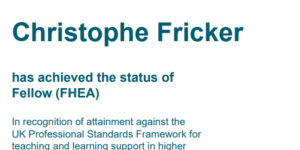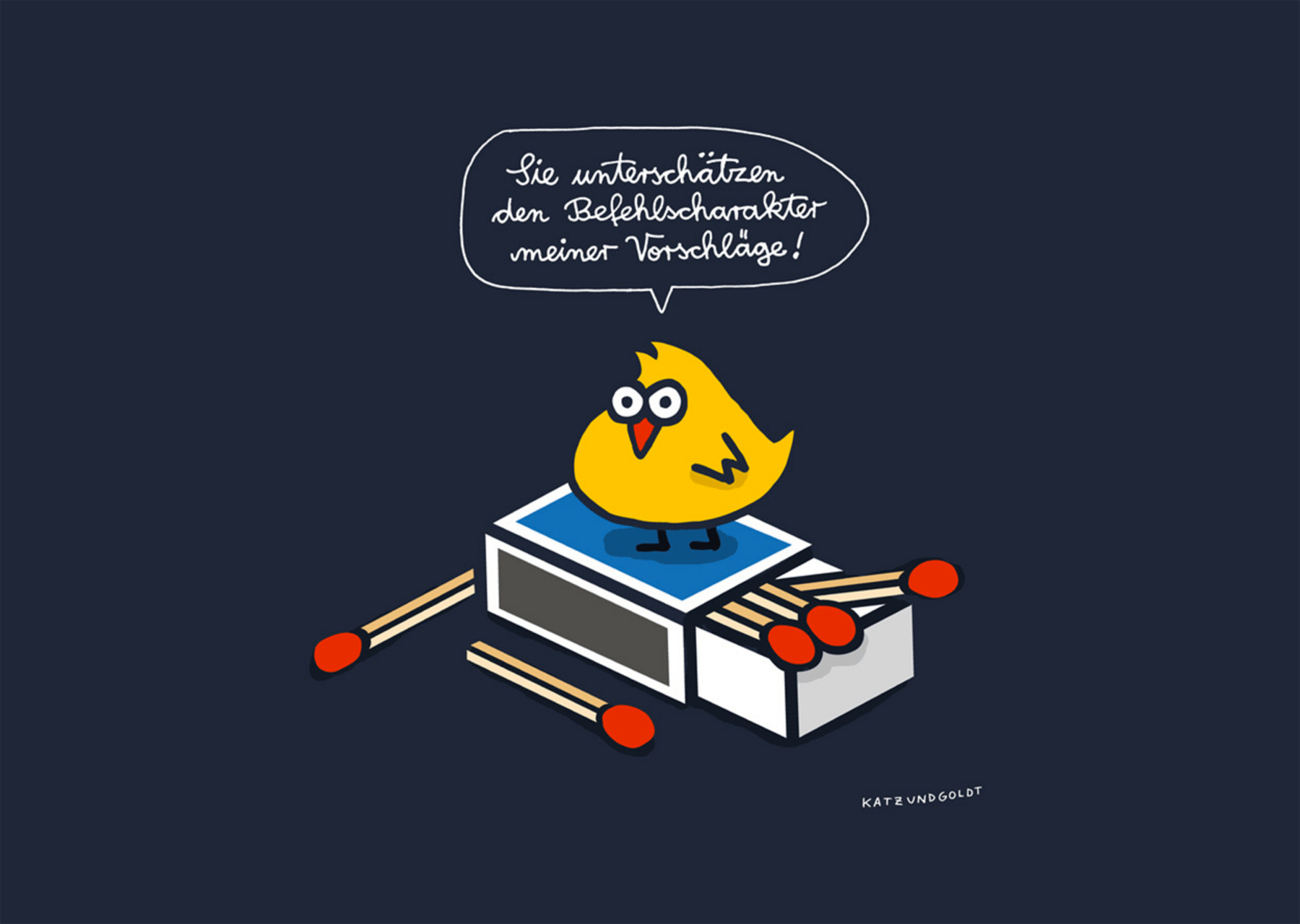 Starting on January 27, I will be teaching a German humour highlights course again, at the University of Bristol. Two hours a week will be devoted to a range of works, artists, topics and — yes! — theories of humour, amusement and entertainment. I’ve done this course before, a couple of years ago, at Rutgers. This time around, I was told off for writing a course description that was — you guessed it — too funny.
Starting on January 27, I will be teaching a German humour highlights course again, at the University of Bristol. Two hours a week will be devoted to a range of works, artists, topics and — yes! — theories of humour, amusement and entertainment. I’ve done this course before, a couple of years ago, at Rutgers. This time around, I was told off for writing a course description that was — you guessed it — too funny.
I’m excited about the course because it will explore many of the ways in which German humour is expressed today. The four main genres we will look at are full-length comedy films (by Gerhard Polt and others); stand-up comedy; op-ed cartoons and short prose texts on current affairs, both national and international; and satirical cartoon books. What I would always like participants to do is develop close textual and visual analysis skills, because without a detailed understanding of what’s going on in, say, Walter Moers’s Adolf or Cindy aus Marzahn’s routines, their often very controversial reception is hard to comprehend. (The same, I guess, is also true for the t-shirt motif by Rumpfkluft pictured above).
In the end, I think humour is a great introduction to the dynamics of public audiences and of particular sensitivities with regard to issues such as class, race, region, and ideology. German humour today obviously has its particular way with language and makes fun of political correctness, dialects and jargon, largely by deploying political correctness, dialects and jargon.
Rest assured: what the course is decidedly not about is explaining jokes. We will not tell jokes and then find someone who didn’t get them and subject them to a line-by-line retelling, voices raised and eyes wide open. We do, however, look at various theories that help us understand what’s going on, sometimes with a focus on psychological or sociological issues, at other times with a focus on poetics. The aim is to see how humour affirms or challenges social and cultural practices and norms, particularly by including or excluding certain groups of people.
I wasn’t supposed to say it, but here we go: the German humour highlights course is not a joke. But I hope it will be fun.
Questions? E-mail me!







